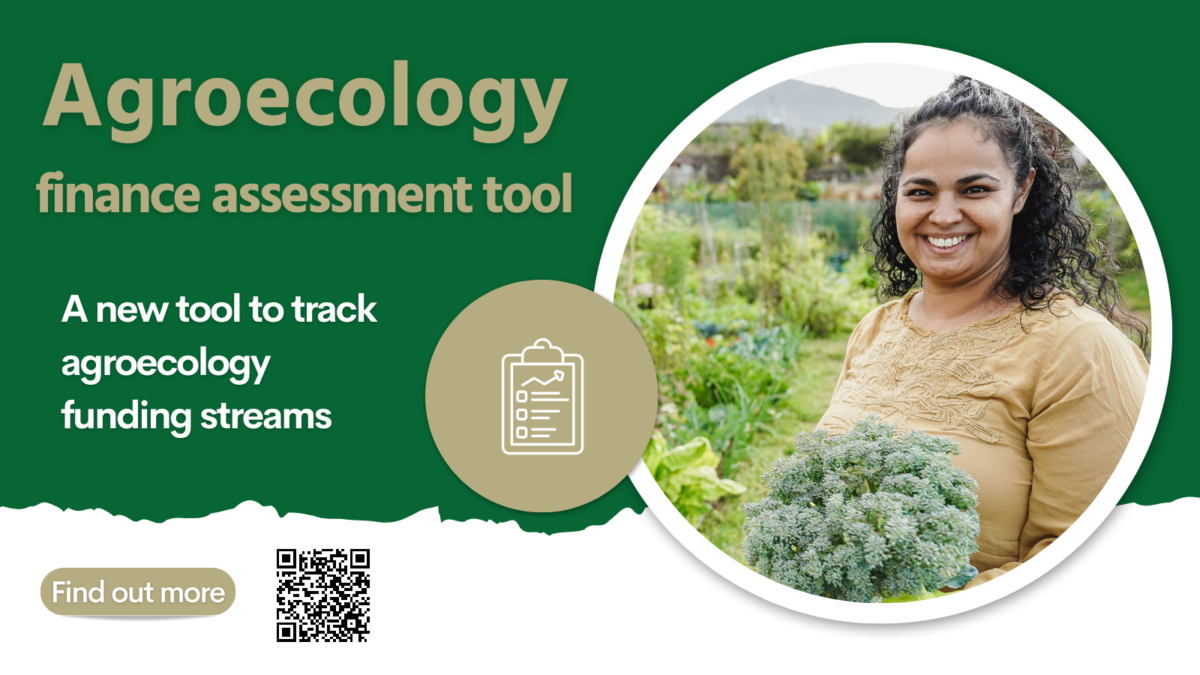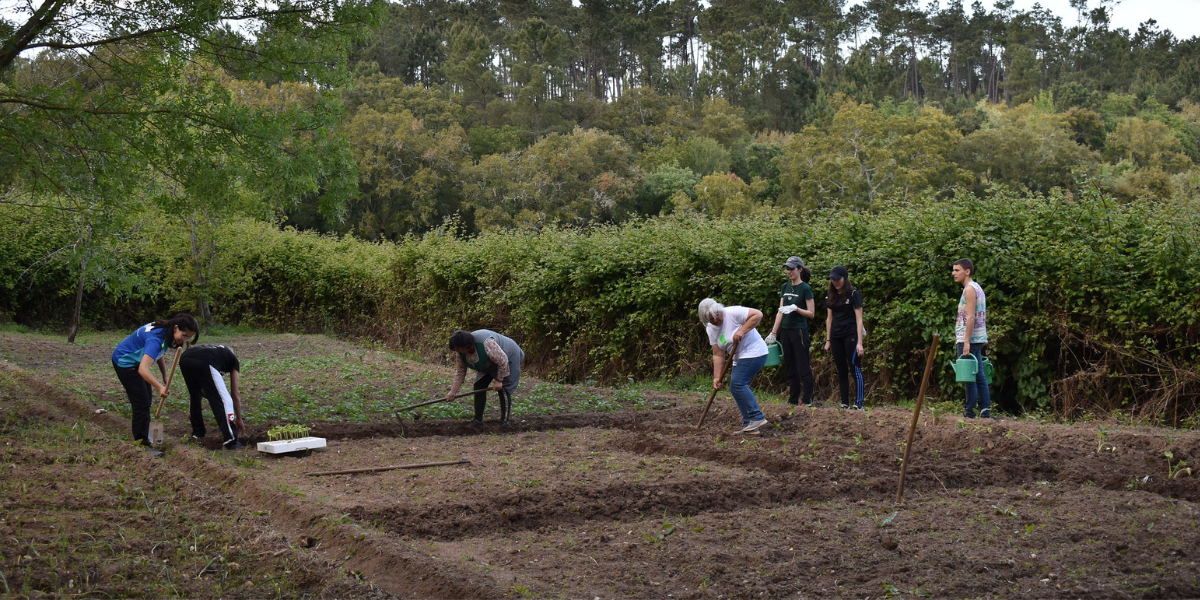The Agroecology Assessment Framework, published today by the Agroecology Coalition, is the result of collaborative work by a community of practices on financing agroecology, together with researchers, civil society organizations (CSOs), and other international organisations and donors. CIDSE contributed to the community of practices by sharing its expertise on agroecology and finance and testing the first draft.
Faced with the combined climate, food security and biodiversity crises, there is a growing interest in agroecology. Until today, however, we could not easily track the volume and quality of these funds globally and were left with the question: how much money is actually invested in agroecology?

At a crucial junction for international discussions around how to make our food systems truly sustainable, during the Committee on World Food Security (23-27 October) and ahead of the UN Climate Change Conference COP28 in Dubai (30 November-12 December), a new tool has just been launched today. The tool was previously presented at the Agroecology Donors Convening in Rome on 21st October 2023, which gathered governments, donors and investors.
The new Agroecology finance assessment tool, aiming at improving the tracking and assessment of funding streams for agroecology, is founded on an innovative methodological framework. It was developed by a community of practice on tracking finance flow to agroecology composed of experts [1] coming from different organisations and backgrounds, including researchers, donors and civil society actors. Based on this methodological framework, the online tool was developed by Statistics for Sustainable Development (Stats4SD).
The framework aims to assess to what extent projects or initiatives contribute towards the agroecological transformation of food systems, based on the 13 principles of agroecology. Reports based on aggregate analysis will be published regularly to track investment trends in agroecology and, therefore, provide a clearer picture of the current funding environment in relation to food systems transformation through agroecology.
A manual accessible to everyone, complements the tool and describes the framework as a guide for the design of agroecological projects or calls for proposals by giving concrete examples of actions that contribute to implementing each of the 13 principles. Going forward, the Agroecology Coalition will work with donors and investors to ensure widespread use of the tool and periodic updates on funding trends for agroecology. The expectation is to observe a rising trend in investment – if the world is truly serious about a climate-friendly food system.
NOTES TO THE EDITORS:
- More information on the tool is available here.
- Interested journalists can ask for a tool demo to find out more.
- See also the B-Act tool by Biovision which reflects how companies, projects and initiatives align with the 13 principles of agroecology. B-ACT | Agroecology Info Pool (agroecology-pool.org)
MEDIA CONTACTS
Valentina Pavarotti, Agroecology Coalition Communications Officer, v.pavarotti@agroecology-coalition.org
[1] African Biodiversity Network, Agroecology Fund, Asian Farmers’ Association for Sustainable Rural Development (AFA), Biovision Foundation, Centre for Agroecology, Water and Resilience, CIDSE, Deutsche Gesellschaft für Internationale Zusammenarbeit (GIZ), Economic Commission for Latin America and the Caribbean (ECLAC), European Commission, German Federal Ministry for Economic Cooperation and Development (BMZ), International Panel of Experts on Sustainable Food Systems (IPES-Food), International Fund for Agricultural Development (IFAD), Statistics for Sustainable Development (Stats4SD), Swiss Agency for Development and Cooperation (SDC), United Nations Environment Programme (UNEP), United Nations Food and Agriculture Organization (FAO), Volontary Services Organization (VSO).
Cover photo credit: CIDSE

